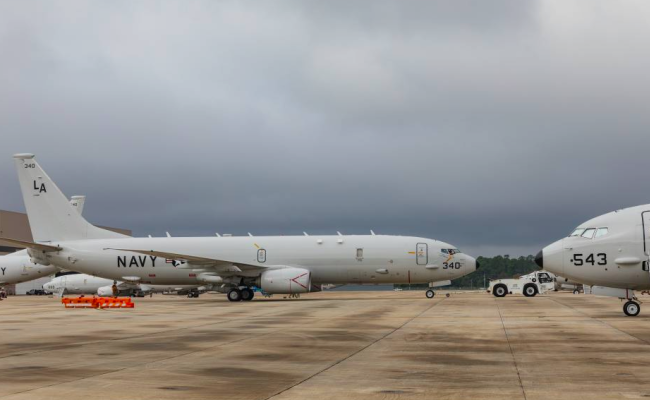Serious times in Sweden: Broad Support for Defense Cooperation Agreement with the USA

Niklas Granholm, Deputy Director of studies at the Department for Security Policy, Swedish Defence Research Agency (FOI). (Photo: Julio Gonzales/FOI)
Sweden has negotiated and signed a defense cooperation agreement with the USA in just about a year's time. A large majority in the Swedish parliament supports it. "Cooperation with the USA is being strengthened rapidly for several reasons. It is serious now," says Niklas Granholm at the Swedish Defence Research Agency.
Last week, Sweden and the US signed an agreement on bilateral defense cooperation (DCA). This gives American forces unimpeded access to and use of 17 Swedish military bases, among other things.
The agreement must be approved by two-thirds of the Swedish parliament before entering into force. The prospects for it getting the green light are good, according to Niklas Granholm, Deputy Director of studies at the Department for Security Policy, Swedish Defence Research Agency (FOI).
"A reassuring majority now supports it: The three government parties, the Moderate Party, the Christian Democrats, and the Liberals, as well as the Sweden Democrats, the Swedish Social Democratic Party, and the Centre Party. The only ones who oppose the agreement or are hesitant are the Green Party and the Left Party. Unless something unforeseen happens, I believe the agreement will go through in parliament with a vast majority," says Granholm to High North News.
"One has the insight that the security in Europe is threatened. After WW2 and especially after the Cold War, European security was largely built with Russia. After February 24th 2022, we have had to build security against Russia. We must quite simply protect ourselves. In this effort, most seem to consider it a benefit to have the support of the US," he maintains.
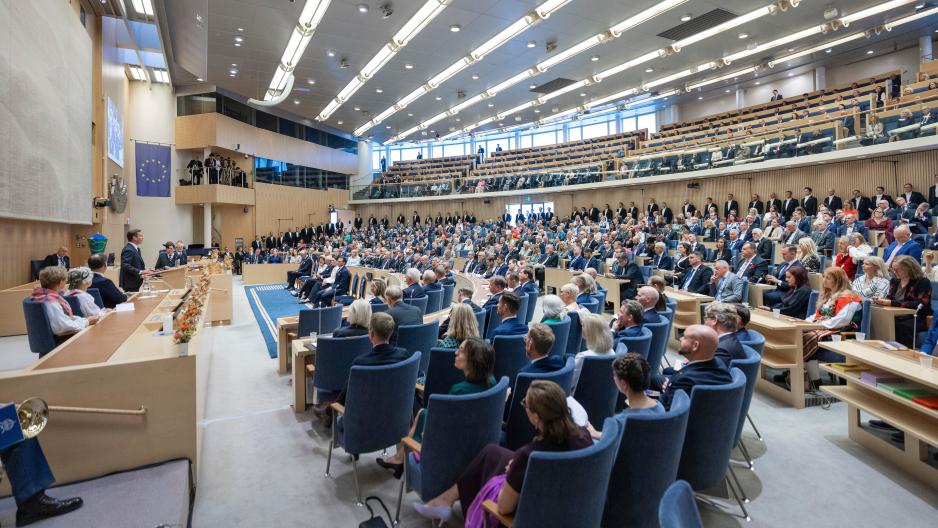
For Sweden's defense agreement with the USA to be implemented, the parliament must approve it and decide on the constitutional amendments necessary. Sweden's Ministry of Defense says that entry into force should be possible by the end of 2024. This may seem feasible from its broad support. (Photo: Melker Dahlstrand/the Swedish parliament)
Subjects of discussion
At the same time, the fact that the defense agreement with the USA has broad political support in Sweden does not mean that it has been exclusively embraced.
"Storage of nuclear weapons on Swedish soil has been the subject of some discussion. Sweden has not made a provison on this in the agreement. However, this issue does not seem particularly relevant in my eyes. American nuclear weapons in Europe are deployed on well-developed and protected military bases. The weapons are also airborne and can be moved around. So if there is a need to place them in the Nordic region, they do not need to be pre-stored in Sweden," says Granholm.
The FOI researcher also refers to the debate surrounding the fact that the agreement gives the US the primary right to prosecute offenses committed by US soldiers in Sweden, both on and off duty.
"Some question what we really know about American legislation and whether we give up too much sovereignty and control over what happens in this country. However, such regulation of criminal jurisdiction also applies in Norway and other countries with which the USA has bilateral defense agreements."
"There are also people in Sweden, like in Norway, who are programmatically against all cooperation with the USA. They oppose the agreement almost regardless of how it will be implemented in practice. But the general view in the public eye is that the agreement is considered a supplement to Sweden's security as we try to deal with an offensive and aggressive Russia that threatens and attacks its neighbors, as its war against Ukraine clearly shows," he maintains.
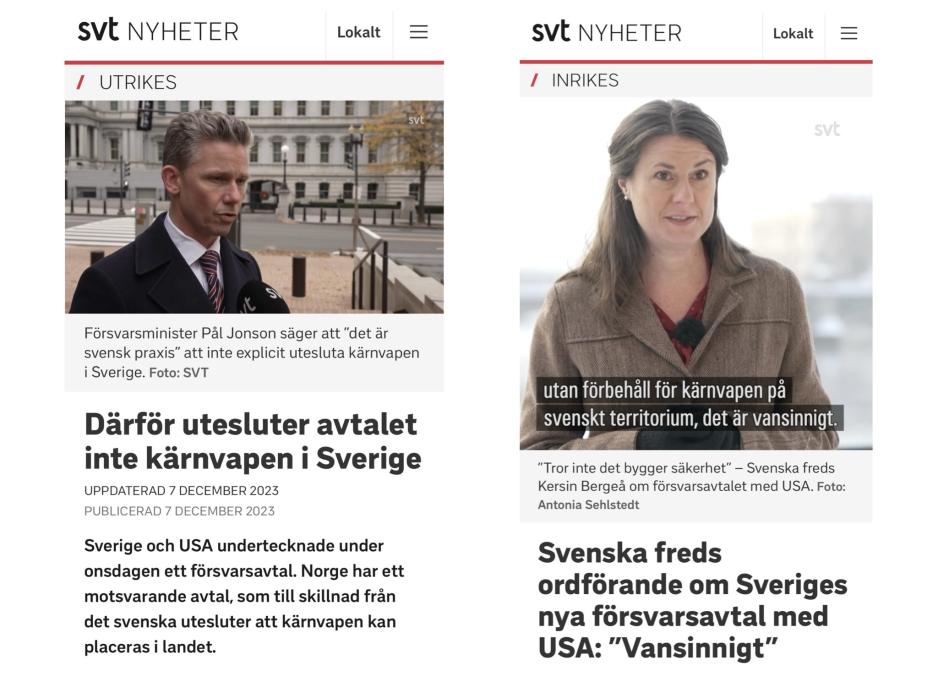
Articles about Sweden's DCA with the USA and the question of nuclear weapons on the website of the Swedish national broadcaster SVT. (Facsimiles: SVT)
Little attention
Sweden's government announced that it had initiated negotiations with the US on this defense agreement in January 2023. Along the way, this has received little attention in the public discourse, according to the FOI researcher.
"The government did not publicly promote that such negotiations were taking place with the USA. It may be connected to the fact that they wanted this to be done in a low-key manner and with small letters until things were ready. By extension, some have naturally criticized the government as not contributing to an open debate about the agreement. But the nature of the matter requires that you cannot talk so openly about certain security arrangements," says Granholm.
Why has the process around this agreement gone so quickly for Sweden?
"Firstly, the process may have been initiated earlier than we think. I heard talk that such negotiations were underway early last fall but did not learn any details," he replies and continues:
"The prime minister, the defense minister, and others in the government have stressed that Sweden is in the most serious security situation since WW2. One has no time to lose. I think this is the main reason the process has been quite fast."
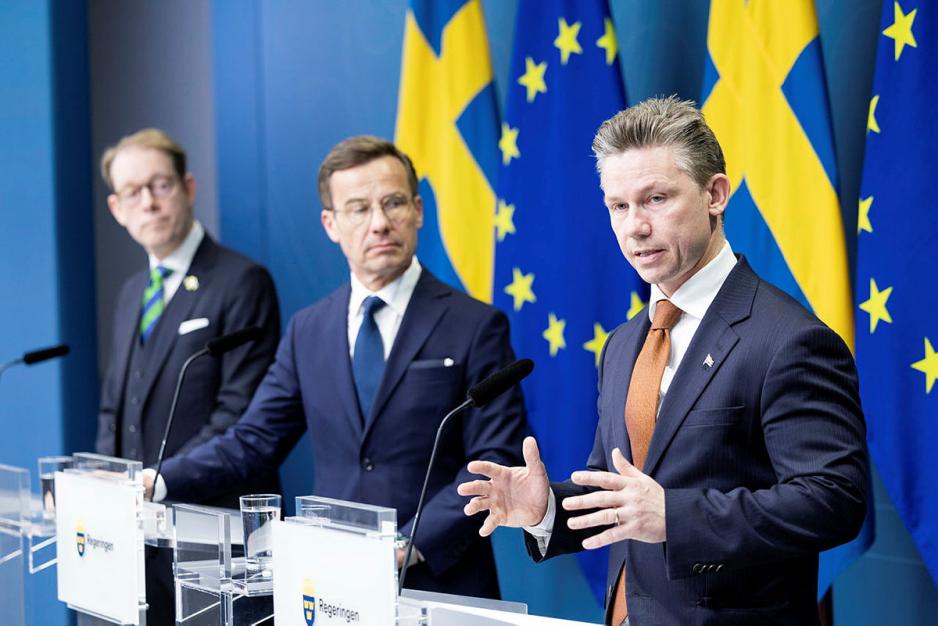
The Swedish government has expressed strong concern about "Russia's great willingness to take risks, both militarily and politically, to redraw Europe's borders with violence." From the right: MoD Pål Jonson (M), Prime Minister Ulf Kristersson (M) and MFA Tobias Billström (M). (Photo: Ninni Andersson/the Swedish Government Offices)
One of several valiant actions
Granholm points out that this seriousness and accelerated efforts to strengthen Swedish security can also be seen in other areas.
"Sweden is increasing its defense expenditure quite quickly. From a aim in 2020 of spending 1.5 percent of GDP on defense, they will now spend 2 percent by 2026 or 2028 at the latest. We also have a debate about whether the 2 percent target is actually sufficient in light of high inflation, rapid price increases in defense materiel, and the threat situation. Perhaps one would rather start looking at 2 percent as a 'floor' rather than a ceiling and aim for 3 or 3.5 percent," he says.
"In November, the Swedish Armed Forces also made a submission to the Defense Committee, where it provides several descriptions of how to quickly strengthen preparedness and develop better military capacity."
The Defense Committee is a forum for consultations between the government and parliamentarians from all parties in the Swedish parliament, which is currently working to lay the foundations for Sweden's biggest defense policy overhaul in 200 years.
In June, the Defense Committee presented a report on security policy (English excerpt), in which it states that an armed attack against Sweden cannot be ruled out.
Still in NATO's waiting room
The DCA with the USA is also linked to Sweden's NATO application, which is still awaiting the green light from Turkey and Hungary.
"We see that the NATO decision is being drawn-out. It seems to be a lot about Turkey wishing to buy F-16 fighter jets from the USA and wanting an agreement before Sweden is given the green light. Meanwhile, the USA says that it is precisely the opposite order that should apply," notes Granholm.
On Tuesday, Sweden's MFA announced that Hungary has repeated its promise not to be the last NATO country to ratify the Swedish application, writes Reuters.
"In the meantime, we are experiencing various gray zone operations against Sweden and the Baltic countries. This fall, we saw sabotage against a data cable between Sweden and Estonia, as well as a gas pipeline and a data cable between Finland and Estonia. Various types of influence operations are also taking place against Sweden, such as disinformation campaigns to destabilize Swedish society and delay and preferably prevent Swedish accession to NATO," says the FOI researcher.
"Cooperation with the USA is therefore being strengthened rapidly for several reasons. It is serious now," he emphasizes.
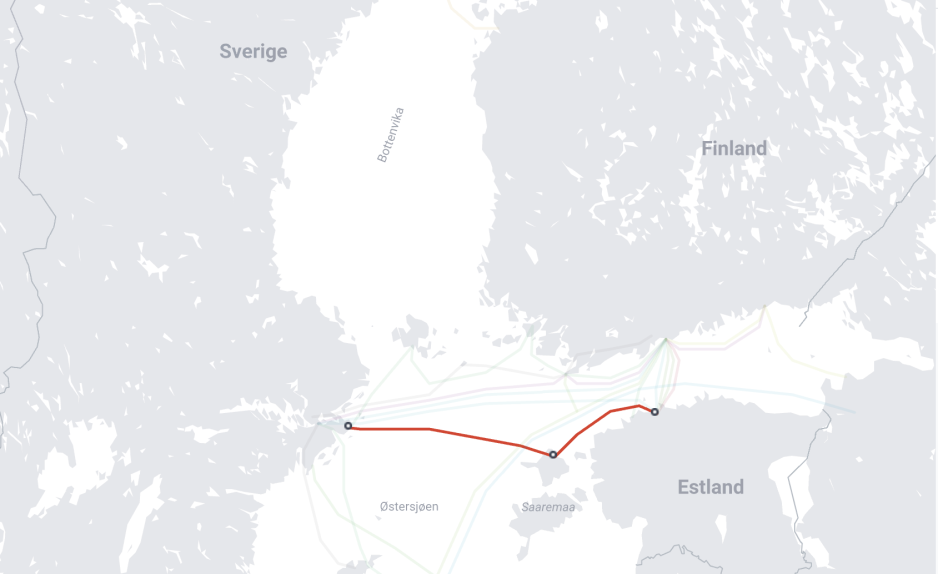
This data cable, Arelion's EE-S1, between Sweden and Estonia, was damaged in October. According to the Swedish Ministry of Defence, the damage was caused by external influences. (Screenshot from Submarine Cable Map)
Important for deterrence
Granholm himself emphasizes that Sweden and other Nordic countries' corresponding DCAs with the USA have an important military-strategic significance vis-à-vis Russia.
"The advantage of an agreement with the USA now is that you can see the entire Nordic and Baltic region with the surrounding sea areas as one coherent strategic area and plan for it. The USA has a similar agreement with Norway, and similar agreements are underway with Finland and Denmark. From a military strategic planning perspective, things become significantly easier in the effort to strengthen the deterrence of Russia. Because that is what these agreements are about," says the researcher.
Sweden's Minister of Defense, Pål Jonson (M), spoke along similar lines to TV4 on Monday.
"The American military presence in Sweden and Northern Europe is stabilizing and deterrent, and raises the threshold for exposing us to an armed attack," says Jonson.
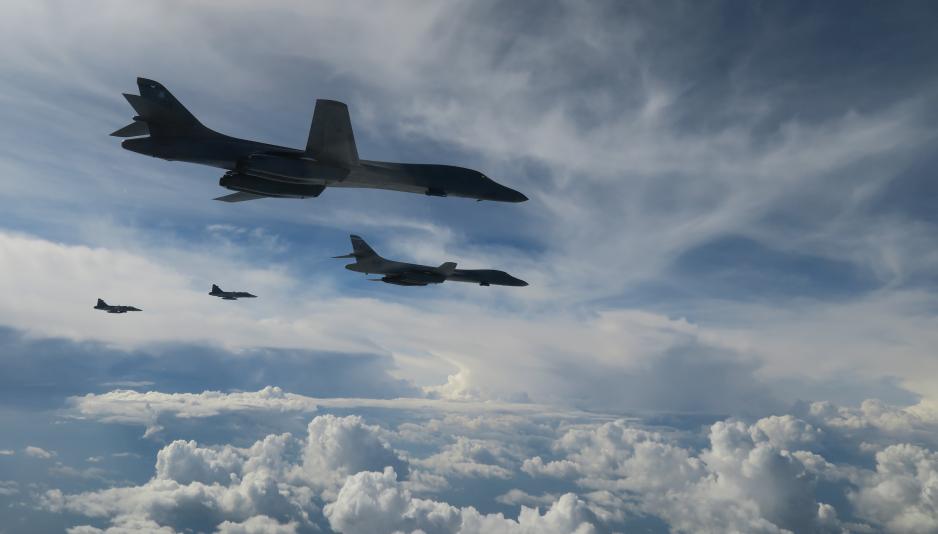
In June, Swedish JAS 39 Gripen fighters trained together with American B-1B Lancer strategic bombers from Luleå-Kallax Air Base in Northern Sweden. (Photo: the Swedish Air Force)
Expects Baltic focus
In practice, Granholm does not believe that US forces will use the 17 Swedish military bases that likely will be made available but instead focus on a handful of them.
"For example, the Kallax Air Base in Luleå will be relevant from a High North perspective. The Muskö naval base, south of Stockholm, could be relevant for the US Navy. Several areas in Southern or Western Sweden will be relevant for army forces. Perhaps one will also want to prepare for the importation of resources in a port, for example, the port of Gothenburg – Scandinavia's largest," he points out and continues:
"Such use of Swedish areas is based on the following: If a conventional war were to break out in the Nordic region and the Baltic Sea area, many people, including myself, believe that the conflict will mainly take place in the east – i.e., at Finland and the Baltic states' borders with Russia. In such a case, Sweden will become a transit area for material and personnel going east. I think this will affect how this DCA with the United States will be implemented."





